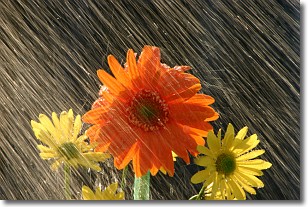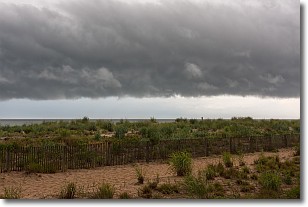Weather Alert in Missouri
Flash Flood Warning issued July 11 at 11:05PM CDT until July 12 at 2:00AM CDT by NWS St Louis MO
AREAS AFFECTED: Audrain, MO; Marion, MO; Pike, MO; Ralls, MO
DESCRIPTION: FFWLSX The National Weather Service in St Louis has issued a * Flash Flood Warning for... Eastern Audrain County in central Missouri... Southeastern Marion County in northeastern Missouri... Pike County in northeastern Missouri... Ralls County in northeastern Missouri... * Until 200 AM CDT. * At 1105 PM CDT, Doppler radar indicated thunderstorms producing heavy rain across the warned area. Flash flooding is ongoing or expected to begin shortly. HAZARD...Flash flooding caused by thunderstorms. SOURCE...Radar indicated. IMPACT...Flash flooding of small creeks and streams, urban areas, highways, streets and underpasses as well as other poor drainage and low-lying areas. * Some locations that will experience flash flooding include... Hannibal, Bowling Green, Vandalia, Louisiana, Monroe City, New London, Perry, Laddonia, Center, Clarksville, Frankford, Farber, Rensselaer, Curryville, Spencerburg, Spaulding, Tarrants, Rush Hill, St. Clement and Ashley. This includes the following streams and drainages... Ely Creek, Camp Creek, Middle Fork Salt River, Peno Creek, Jasper Spring Branch, South Fork Salt River, Bear Creek, Fox Creek, Indian Creek, Calumet Creek, Middle Sulphur Creek, Grassy Creek, Haw Creek, Talleys Branch, Hascall Creek, Mississippi River, Cedar Creek, Denny Run, Littleby Creek, Anderson Creek, Cuivre Creek, Lick Creek, Weatherly Branch, East Fork, Mace Branch, Dry Straw Branch, Little Noix Creek, Crooked Creek, Purdey Creek, Spencer Creek, West Fork Cuivre River, Salt River, Hippo Branch, Bean Branch, Brush Branch, McDowell Branch, Mams Slough, Spring Creek, Ramsey Creek, Mud Creek, South Spencer Creek, Bear Branch, Bear Slough, Nichols Creek, Elm Branch, Hays Creek, Wildcat Creek, Madden Branch, Shady Creek, South River, Little Buffalo Creek, Battle Creek, Little Bear Creek, Little Calumet Creek, Noix Creek, Buffalo Creek, Owl Creek, Rocklick Branch, Fools Creek, Shell Branch, South Fork North River, Sharpsburg Branch, Burbridge Creek, Cuivre River, West Branch Sees Creek, Turkey Creek, East Lick Creek, North Fork Cuivre River, Irvine Branch, Town Branch, Henderson Branch, Little Creek, Sugar Creek, Marble Creek, East Sulphur Creek, Railroad Branch, West Lick Creek, Horn Branch, Brush Creek, Big Creek and Plum Creek.
INSTRUCTION: Turn around, don't drown when encountering flooded roads. Most flood deaths occur in vehicles. Be especially cautious at night when it is harder to recognize the dangers of flooding.
Want more detail? Get the Complete 7 Day and Night Detailed Forecast!
Current U.S. National Radar--Current
The Current National Weather Radar is shown below with a UTC Time (subtract 5 hours from UTC to get Eastern Time).

National Weather Forecast--Current
The Current National Weather Forecast and National Weather Map are shown below.

National Weather Forecast for Tomorrow
Tomorrow National Weather Forecast and Tomorrow National Weather Map are show below.

North America Water Vapor (Moisture)
This map shows recent moisture content over North America. Bright and colored areas show high moisture (ie, clouds); brown indicates very little moisture present; black indicates no moisture.

Weather Topic: What is Precipitation?
Home - Education - Precipitation - Precipitation
 Next Topic: Rain
Next Topic: Rain
Precipitation can refer to many different forms of water that
may fall from clouds. Precipitation occurs after a cloud has become saturated to
the point where its water particles are more dense than the air below the cloud.
In most cases, precipitation will reach the ground, but it is not uncommon for
precipitation to evaporate before it reaches the earth's surface.
When precipitation evaporates before it contacts the ground it is called Virga.
Graupel, hail, sleet, rain, drizzle, and snow are forms of precipitation, but fog
and mist are not considered precipitation because the water vapor which
constitutes them isn't dense enough to fall to the ground.
Next Topic: Rain
Weather Topic: What are Shelf Clouds?
Home - Education - Cloud Types - Shelf Clouds
 Next Topic: Sleet
Next Topic: Sleet
A shelf cloud is similar to a wall cloud, but forms at the front
of a storm cloud, instead of at the rear, where wall clouds form.
A shelf cloud is caused by a series of events set into motion by the advancing
storm; first, cool air settles along the ground where precipitation has just fallen.
As the cool air is brought in, the warmer air is displaced, and rises above it,
because it is less dense. When the warmer air reaches the bottom of the storm cloud,
it begins to cool again, and the resulting condensation is a visible shelf cloud.
Next Topic: Sleet
Current conditions powered by WeatherAPI.com




